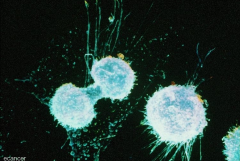A pairing of two experimental drugs inhibits tumor growth and blocks drug-induced resistance in ovarian cancer, according to a preclinical study led by Weill Cornell Medicine investigators. The research reveals a promising strategy against this hard-to-treat malignancy, and more generally demonstrates a powerful new approach for the identification of effective regimens to treat genetically diverse cancers.
Ovarian cancer is genetically diverse in the sense that it can be driven by mutations in many different genes. This complicates the standard strategy of developing drugs to target common driver mutations. In the study, published July 7 in Cell Reports Medicine, the researchers applied a new precision medicine approach focused not on individual mutations but instead on the activation of growth signaling pathways specific to ovarian tumor cells. Using this pathway level data, they identified a new combination treatment strategy that selectively targets ovarian tumor cells and reduces ovarian tumor growth in preclinical models.






